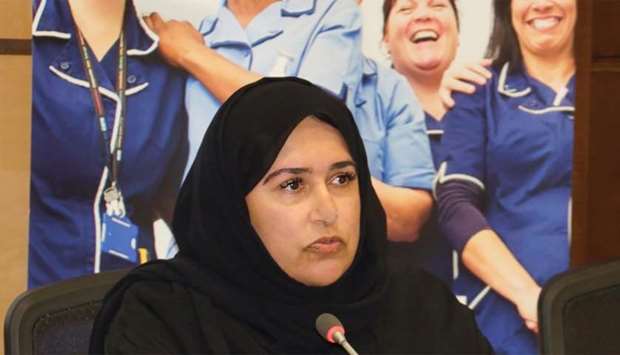Qatar has provided very strong mental health support for the community right from the early days of the novel coronavirus (Covid-19) outbreak in the country and will continue to do so, a top official of Qatar Foundation’s global healthcare initiative has highlighted.
“Qatar took a strong approach to safeguarding mental health from day one. The Ministry of Public Health (MoPH) created a hotline staffed by psychologists who speak different languages and were available for help and support,” Sultana Afdhal, CEO, World Innovation Summit for Health (WISH), told Gulf Times.
“MoPH has also produced and distributed mental health guides for construction workers in a variety of languages that advise them on what to do in terms of personal safety and where they can access the services they need. The ministry is also co-ordinating with the Primary Health Care Corporation and Hamad Medical Corporation (HMC) to provide the necessary services,” continued Afdhal.
The official also noted that Qatar’s Mental Health Friends Association (Weyak) has been in the frontline to assist the people in distress during the pandemic.
“Weyak has been running programmes throughout to help people cope with the feelings of uncertainty that come with people wondering when all this is going to end. For instance, there are understandably high levels of anxiety among labourers coming from poorer countries, who worry about losing money and jobs if they are infected and cannot work. They now have the information they need to get the right support,” she explained.
“Similarly, other people may be feeling depressed or anxious about being isolated, but they also have speedy access to a support network to help them fight those feelings and stay mentally healthy. HMC also has a dedicated mental health department that operates on a 24-hour basis, and some hospitals and clinics in Al Rayyan, Al Khor, and Al Wakra are offering personal services for people who don’t want to talk on the phone. There are also services to support the mental health of people in hospital as well as in quarantine,” she highlighted.
Afdhal feels that researching on the effects of the current pandemic on the nervous system is a crucial part of the ongoing tradition of strengthening future responses. She is also of the opinion that the healthcare landscape will undoubtedly change in response to the turn of events that the epidemic has wrought on the lives of the people.
“Each experience has yielded important data and data collection methods that have shaped the responses of future generations to similar outbreaks so that they can be better managed. Research outcomes will play a vital role in building those parts of the health system that provide specific mental health therapy and treatment to those affected by the pandemic, as well as informing policy makers’ decisions during the design of healthcare systems around mental health,” she maintained.
According to the WISH CEO, Qatar’s healthcare system has an established infrastructure for tackling communicable diseases as well as ensuring mental health of the population.
“It is important to remember that we have not faced an epidemic on this scale for a century, since the 1918 flu pandemic. The speed and the spread of the Covid-19 virus was a shock to global healthcare systems and exposed several gaps in preparedness but Qatar took the decision early on to build temporary hospitals to provide the necessary capacity. Some of these will now remain to serve the country during any future needs,” added Afdhal.


